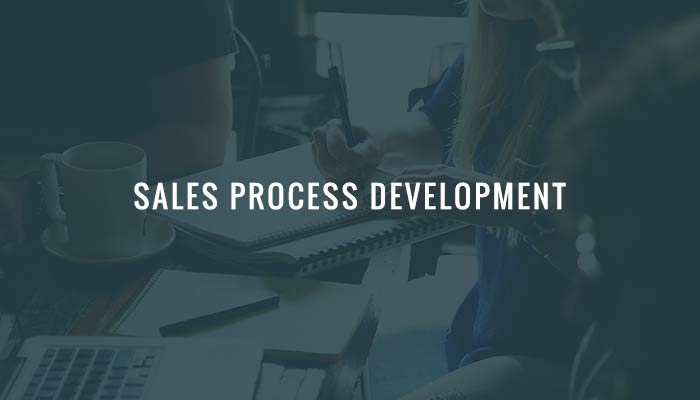
How many companies have formally documented sales processes?
Perhaps less than you think. It’s not an issue that’s restricted to small or medium sized companies. Despite significant investments in marketing activities, Customer Relationship Management (CRM) technology, complex compensation systems and the ongoing recruitment of new and replacement salespeople, a surprising amount of larger companies have neglected this core component of their potential success.
Developing a sales process
Every potential sale has a number of clear steps that a salesperson has to manoeuvre herself through to get to the point where she has satisfied the customers requirements sufficiently well to yield an order for the companies products and services.
The sales process should include details of activity they must engage in, the nature of the relationships they should endeavour to foster and the tangible sequential goals they should strive to achieve in order to progress the sale.
The ideal sales process should guide the salesperson along a path and allow both salespeople and managers to effectively manage effort and outcomes.
Making the sales process real and current is an investment that should be seen as critical and ongoing.
Implementation
Overcoming implementation inertia and getting to a stage where the process is embedded in the culture of the organisation needs determination from sales leaders and the sales-force as a whole.
Once you’ve designed a new process it should undergo rigorous testing and evaluation to ensure that it works and to fix any bugs or shortfalls that become apparent.
Leaders need to take responsibility for continually selling the benefits to the salesperson and to invest their time in helping the salesperson accept and learn the new process.
Salespeople that understand how a new process can help them become more successful and how to implement it will be far more likely to embrace the change.
Equally, a good sales process can help salespeople confidently benchmark themselves against company (and customer) expectations and seek development support and training to enhance their skills in key areas.
Ongoing monitoring and refinement
For the sales process to have meaning in the real world it needs to be regularly reviewed, refined and adapted to ensure that it continually evolves with the changing commercial landscape in which the company lives. Evolutionary changes are by their very nature small, regular and subtle and will often negate the need for an unsettling “revolution”.
The process will need to be constantly monitored to ensure that it is being properly implemented. Reporting systems should be designed to capture all aspects of the sales process in the same format and language used in the process descriptions themselves.
Sales meetings should also follow this protocol and ideally should be structured in a manner that reinforces the process as being embedded in the organisational culture.
Regular surveys of customers, field based coaching by Sales Managers and ongoing salesperson feedback all have a part to play in this process.
Finally, remember that if an organisation is truly to be “customer focussed” then everyone becomes part of the sales process. Collaboration and knowledge sharing across functional areas will contribute greatly to a true “outside in” customer focussed sales process that helps the organisation and its people deliver consistently outstanding results.
Own your Sales targets, don't let them own you.
Finally, get the upper hand by taking control of your sales process. Join me on the award winning Sales excellence masterclass in September where I'll help you significantly increase the effectiveness of your sales strategies.
"This Masterclass really advocates breaking your usual thinking and changing the normal 'everybody does it' mind-set"
"After the Sales Excellence Masterclass I am feeling more confident in sales as I have better understanding of the process"
Click on the banner below to learn more about my masterclass.
Published by James Osborne July 6th 2016
Comments